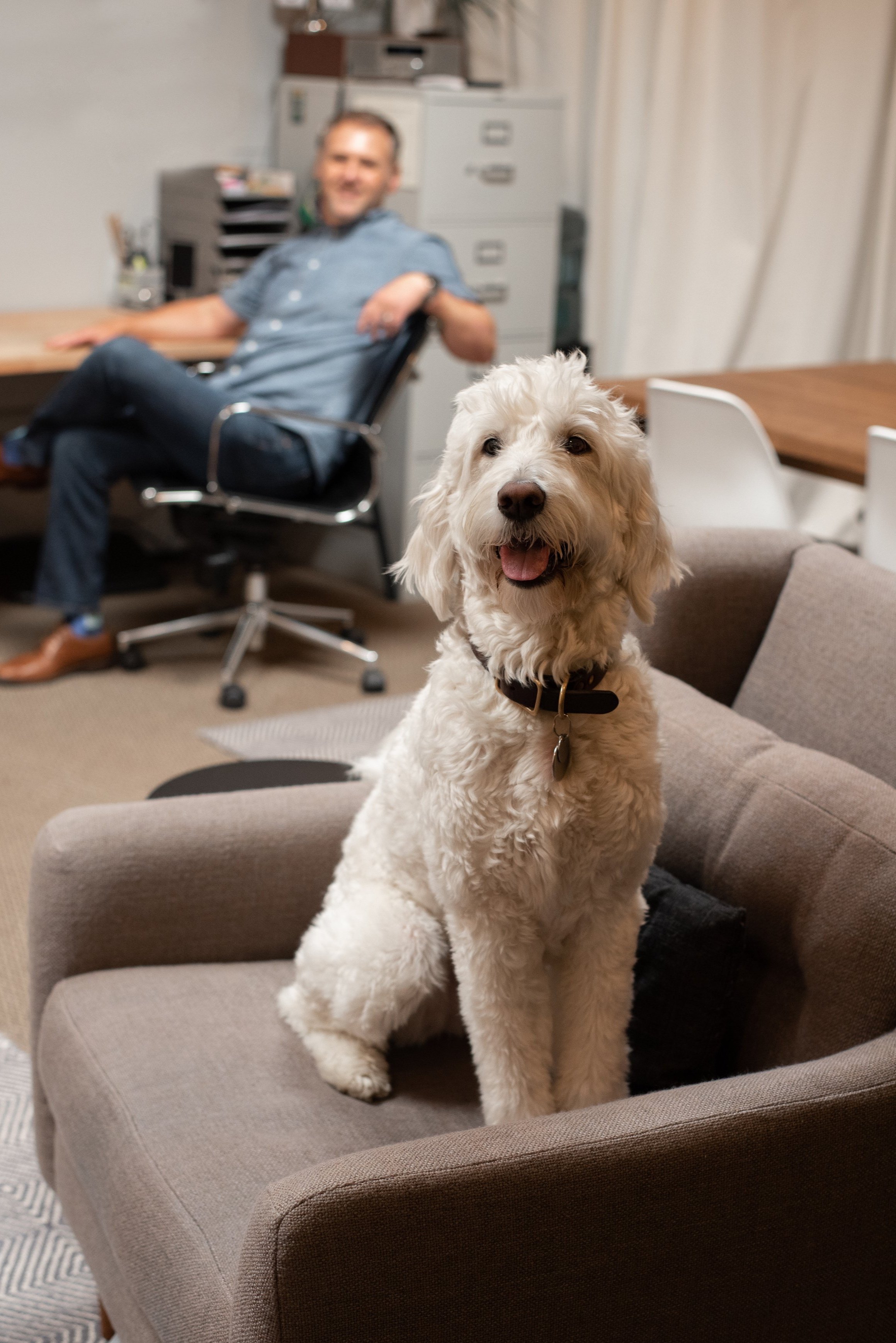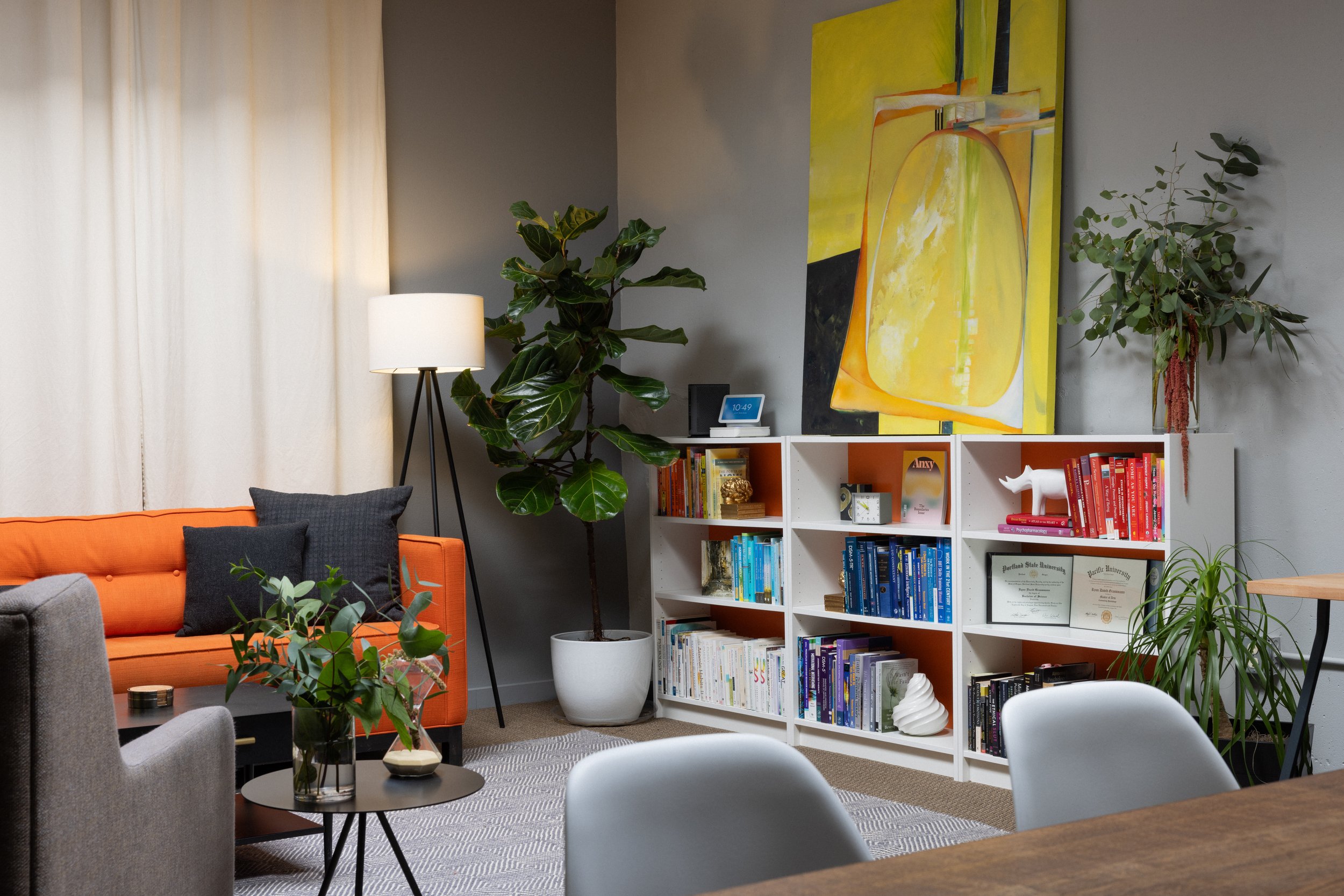Meet Us
RYAN GRASSMANN
LICENSED PROFESSIONAL COUNSELOR
Hi. If you’re reading this then you’re most likely looking for a therapist. This step is often not easy and rarely taken lightly. I’m here to make engaging in the therapy process easier for you.
It’s not uncommon to get stuck. It can be difficult to understand why or how you can’t seem to “just get over it” and the usual strategies for dealing with problems aren’t working anymore. One of my greatest joys is to help you make sense of your experience. We do this together, you and me. Our relationship provides the element that allows for processing, confronting, and reconciling many types of pain and confusion. I model a facilitative therapeutic relationship that is entirely authentic. I hold you in positive regard regardless of how you feel about yourself. I care about what troubles you. The relationship heals – it’s the primary enduring catalyst for promoting growth, acceptance, and recovery. Don’t we all want growth, acceptance, and recovery in our lives? These are the results that give life meaning. You deserve it. We all do.
I earned a Masters in Counseling Psychology from Pacific University. My areas of focus are personal development and growth, mood disorders including depression and bipolar disorder, anxiety, chronic pain and illness, grief and loss, integrated therapy, men’s issues, professional development, premarital therapy, and relationship therapy.
When I’m not working I enjoy all that a lifetime in Oregon offers. Growing up in the outdoors, I rarely miss a chance to head out and allow nature to restore my spirit. When I’m not away from home I can be found enjoying my backyard with family, friends, and a host of animal companions -- often trying new BBQ recipes and growing all types of fruits and vegetables.
FRANCES
THERAPY ANIMAL in training
Frances is an enthusiastic and friendly four year-old, female, golden retriever/poodle mix. She is excited about meeting people and enjoys lounging in the office. Her coat, better described as hair, is non-shedding. This makes her less likely to cause allergic reactions to those who are sensitive to pet dander.
Frances is currently in-process in her therapy dog training. She has an exuberance for life that is often contagious to those she’s around and her joyful smile and profound capability to snuggle provides comfort to those in need.
When Frances is not in the office she enjoys running really fast in open spaces hoping other dogs will chase but not catch her. She likes lounging on the kitchen floor in hopes for bites of the meal that is being made. She loves treats of most any kind and squeaky stuffed animals.
ALICE
RETIRED THERAPY ANIMAL
rest in peace
Alice is a well-mannered and warm-hearted, 14 year-old, female, golden retriever/poodle mix. She loves human companions. Her coat, better described as hair, is non-shedding. This makes her less likely to cause allergic reactions to those who are sensitive to pet dander. Alice has been trained from a young age and has attained her Canine Good Citizen certificate from the American Kennel Club.
Alice has a long history of bringing comfort to people in times of sadness, cheer to those celebrating, and safety to those who are fearful. She often greets clients with a woof and tail wags and consistently proves herself helpful in sessions.
When Alice is not in the office she enjoys “getting her willies out” by running fast in open spaces. She likes long walks with or without a destination. She loves stuffed animals and tennis balls. And, lest we forget, she loves visiting the local sausage vendor for free tasty bites. Good girl, Alice. Good girl.
Alice has retired from her therapy animal duties in her old age. She is spending her golden years at home with long naps and slow daily walks.
LOCATION + SPACE
Portland Mental Wellness has created a warm, inviting, and hip space with modern furnishings, original art, skylights, and a variety of beverages offered upon your arrival. We are located in close-in SE Portland on the second floor of the 1235 Creative Suite building at the corner of SE Division and 12th Avenue. Entrance to the building can be found through the front doors located next to Double Dragon restaurant. Free street parking is available and is best found on SE Elliott on the northwest side of the building.
APPOINTMENT HOURS
MONDAY | 10-7
TUESDAY | 10-6
WEDNESDAY | 10-6
THURSDAY | 10-7
FRIDAY | CLOSED
AREAS OF PRACTICE
The Portland Mental Wellness practice is focused on supporting clients with the following:
ANXIETY
CHRONIC PAIN + ILLNESS
GRIEF + LOSS
MEDICATION MANAGEMENT
MEN'S ISSUES
MOOD DISORDERS (DEPRESSION, BIPOLAR)
PERSONAL DEVELOPMENT + GROWTH
PREMARITAL THERAPY
PROFESSIONAL DEVELOPMENT
RELATIONSHIP & COUPLES THERAPY
APPROACHES TO TREATMENT
No one theory adequately explains the human experience. No single therapeutic approach can effectively ease all suffering. With this in mind, I have come to recognize that an integrated approach is necessary to address the numerous and broad human experiences that leave us feeling vulnerable.
All clients receive an individualized treatment combining numerous methods. Though the methods may be unique to you, the primary ingredient is our combined effort and alliance. Regardless of the therapeutic method, it is the relationship between client and therapist that promotes healing. Trust, advocacy, respect, acceptance, and validation – these are the ingredients required for psychological healing and growth. Below are various methods from which I draw treatment interventions.
EXISTENTIAL HUMANISTIC THEORY
I draw heavily upon Existential Humanistic Theory (EH). Empathetic listening and positive regard are powerful tools that promote a felt sense of acceptance and validation within the therapeutic alliance. In some instances humor plays a role; the irony of human life as well as the numerous paradoxes we endure cannot go unmentioned. The human experience serves as the guide to discovery.
COGNITIVE BEHAVIORAL THERAPY + ACCEPTANCE AND COMMITMENT THERAPY
For those that suffer from anxiety and mood disorders, like major depression and bipolar and anxiety disorders, Cognitive Behavioral Therapy (CBT) interventions are often beneficial. Altering our patterns of thinking by assessing the accuracy of our thoughts and beliefs can help free us from the confines of our fear and sadness.
Acceptance and Commitment Therapy (ACT) is similarly helpful. By making personal values explicit and taking committed action based firmly on our values, we benefit by experiencing contentment that results from living our truths.
DIALECTICAL BEHAVIOR THERAPY
Dialectical Behavior Therapy (DBT) promotes awareness of triggers and mindfulness of the moment. Emotional disregulation is met with strategic coping mechanisms that provide improvement of soothing and distress tolerance skills.
ANIMAL ASSISTED INTERVENTIONS
Trauma experiences of many kinds often benefit from healing interactions with a trained therapy dog. Safety, comfort, and the warm responses of an affectionate animal help to make the act of vulnerable disclosure something that can be done with a sense of empowerment. Animal Assisted Interventions (AAI) are easily integrated into many therapeutic methods.
SENSORIMOTOR PSYCHOTHERAPY
Attachment difficulties, grief, chronic pain, and trauma have all been shown to respond well to modalities that include our bodily experience. Because our bodies are a critical element of who we are, it makes sense that integrating our physical experience into the therapeutic effort has provided so many the opportunity of consummate healing.
Personal and professional growth occurs when we summon the courage to face our fears. A therapeutic alliance provides the vehicle to self inquiry and intentional change.
EMOTIONALLY FOCUSED THERAPY
For therapy related to relationships, I’ve found that Emotionally Focused Therapy (EFT) for couples serves a powerful tool that helps to make sense of our experiences in love relationships. Feeling secure, feeling heard, and asking for what you want from your partner are just a few of the benefits of a thriving adult attachment. Additionally, for those in volatile or avoidant relationships, I find the Gottman Method is helpful in helping couples learn and practice new skills required to navigate the complexities of communication with much less difficulty.






